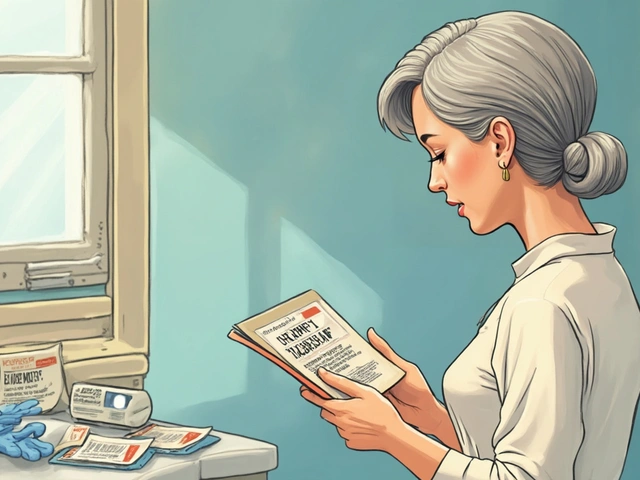Chronic Constipation: What It Is and How to Fix It
If your stools are hard, small, or you have to strain a lot, you might be dealing with chronic constipation. It’s more than an occasional hiccup – it’s a regular problem that can affect comfort, energy, and mood. The good news? Simple changes in what you eat, move, and how you handle stress can make a big difference.
Why Does Chronic Constipation Happen?
Most of the time, constipation boils down to three things: not enough fiber, not enough water, and not enough movement. Fiber adds bulk to stool, water helps that bulk soften, and activity nudges the gut along. But other factors matter too. Certain medicines – like painkillers, antidepressants, and some blood pressure pills – can slow your gut. Hormonal shifts, especially during pregnancy or menopause, also play a role. Finally, habits like skipping bathroom breaks or ignoring the urge can train your body to hold back.
Easy Lifestyle Fixes That Work
Start with food. Aim for 25‑30 grams of fiber a day – that’s roughly a cup of beans, a handful of berries, or a medium apple with skin. Whole‑grain breads, oats, and brown rice are also solid choices. If you’re not used to that amount, add fiber gradually to avoid gas.
Drink plenty of water. A good rule of thumb is about eight 8‑oz glasses daily, but if you’re active or live in a hot climate, you’ll need more. When you’re sipping water throughout the day, you keep stool soft and easier to pass.
Move your body. Even a 15‑minute walk after meals can boost gut motility. Simple stretches, yoga poses like the “wind‑relieving pose,” or light jogging also help.
Set a bathroom routine. Give yourself 10‑15 minutes after a meal when the colon is naturally more active. Sit relaxed, don’t rush, and try to train your brain that this is a regular time to go.
Watch meds. If you suspect a prescription is causing trouble, talk to your doctor. Sometimes a dosage tweak or a different drug can relieve the constipation without sacrificing the treatment.
Consider gentle over‑the‑counter aids. Fiber supplements (psyllium husk) or osmotic laxatives like polyethylene glycol can be useful for short‑term relief, but don’t rely on them daily without a doctor’s nod.
These steps form a backbone you can adjust to fit your life. Most people see improvement within a week or two if they stick to the plan.
When constipation hangs on despite diet and movement, it might be time to see a healthcare professional. Persistent symptoms could signal an underlying issue like thyroid problems, irritable bowel syndrome, or a blockage that needs testing.
Bottom line: chronic constipation isn’t a life sentence. A mix of fiber, fluids, movement, and smart habits can get your gut back on track. Start small, stay consistent, and you’ll notice the difference in how you feel each day.
6 June 2025
Tessa Marley
Get the real story behind Prucalopride—what it does, how it works, possible side effects, and whether it’s right for you. This guide answers the questions everyone secretly Googles about this popular constipation medication. Find practical tips, data, and patient-friendly advice based on the latest info.
Continue Reading...






